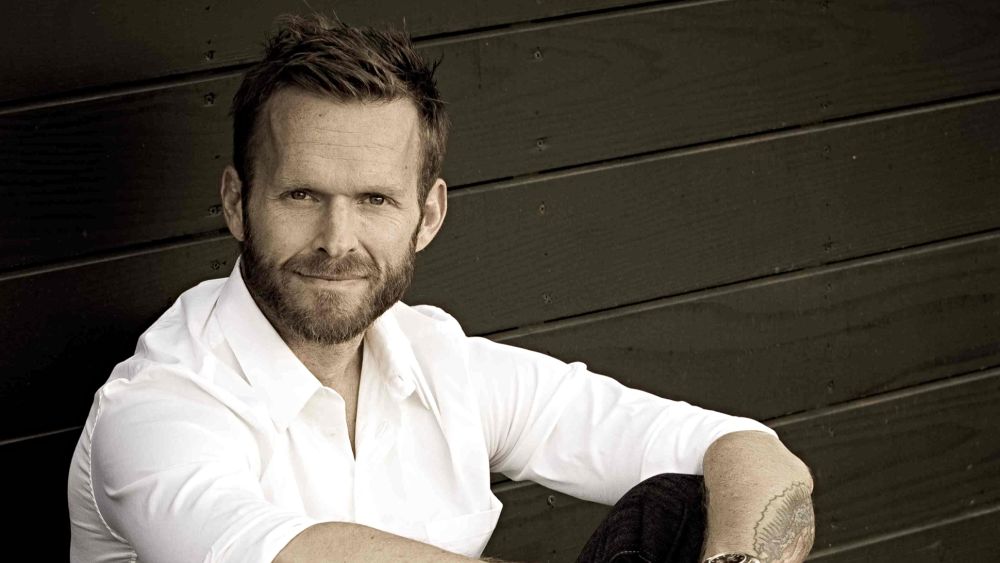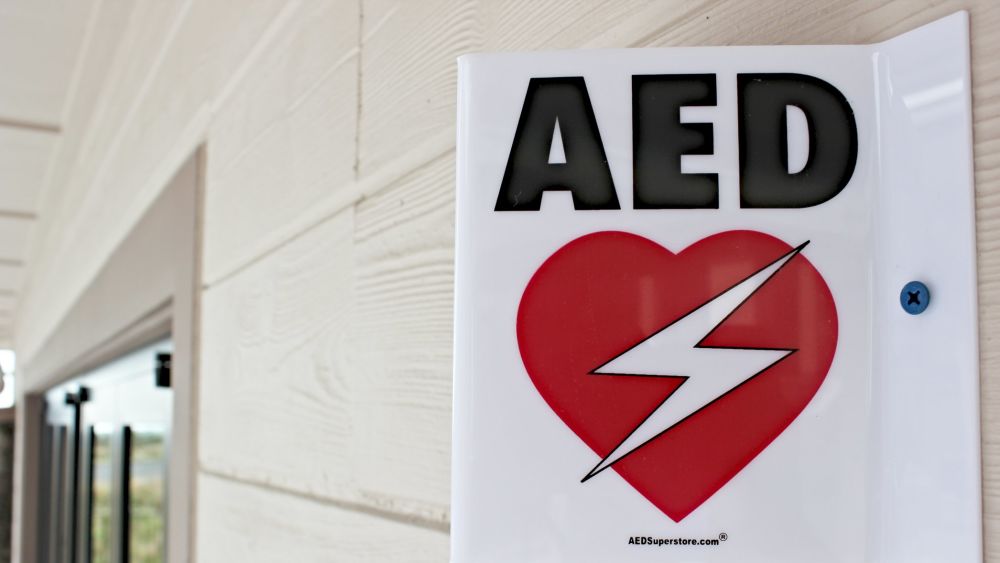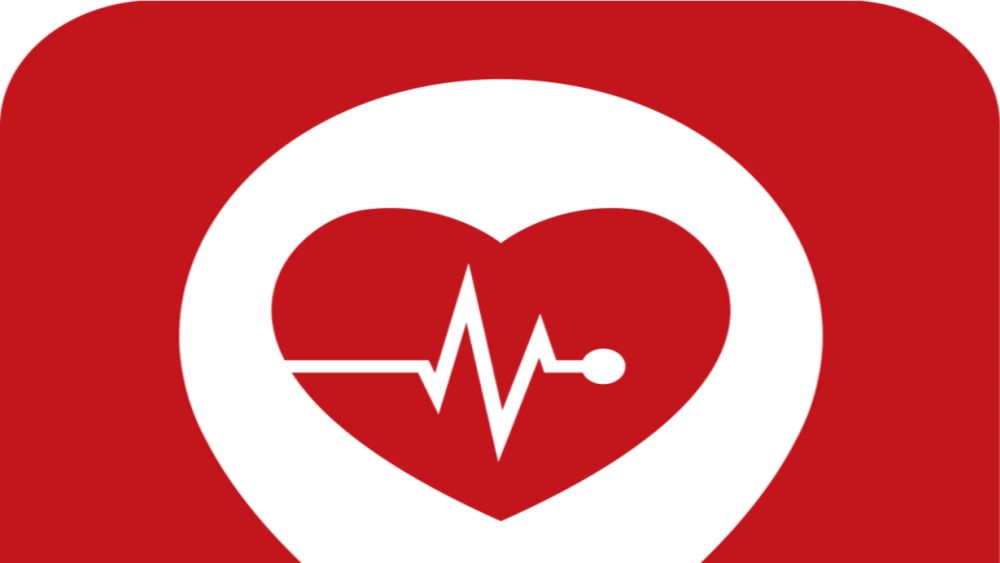Sudden Cardiac Arrest
What we have done for ourselves alone dies with us; what we have done for others and the world remains and is immortal - Albert Pike

image by: Heartland CPR
HWN Suggests
Why Does Cardiac Arrest Often Strike in the Morning?
For decades scientists have known that sudden cardiac death–a failure in the heart’s electrical system that leads people to, well, suddenly drop dead–occurs more often in the morning hours. Analysis of data from the ambitious Framingham Heart Study led to the scientific documentation of the curious link as early as 1987. But for just as long, scientists haven’t been able to do much with that knowledge. A flurry of papers in the late 1980s pointed to possible explanations: the assumption of an upright posture, for example, or problems with the process that typically prevents blood clots. Still, scientists have been unable to pin down a basic mechanism to explain the connection between the body’s…
Resources
 Can Cardiac Screenings Save the Lives of Young Athletes?
Can Cardiac Screenings Save the Lives of Young Athletes?
An EKG exam could help detect heart disease in young athletes. Or it could send parents down a costly road of expensive follow-up exams that lead nowhere.
 This AI detects cardiac arrests during emergency calls
This AI detects cardiac arrests during emergency calls
Corti, the company behind the technology, has been trialling its product in Copenhagen, where it has been listening in to calls made to the official 112 emergency number. The company says its system analyzes emergency calls to learn words and characteristics associated with cardiac arrests and applies them to a neural network. This can predict more accurately than a human if someone’s heart has stopped.
 A Heart Risk Factor Even Doctors Know Little About
A Heart Risk Factor Even Doctors Know Little About
To millions of Americans, Bob Harper was the picture of health, a celebrity fitness trainer who whipped people into shape each week on the hit TV show “The Biggest Loser.” But last February, Mr. Harper, 52, suffered a massive heart attack at a New York City gym and went into cardiac arrest. He was saved by a bystander who administered CPR and a team of paramedics who rushed him to a hospital, where he spent two days in a coma. When he awoke, Mr. Harper was baffled, as were his doctors. His annual medical checkups had indicated he was in excellent health. How could this have happened to someone seemingly so healthy? The culprit, in turned out, was a fatty particle in the blood called lipoprotein(a).
 Sudden cardiac arrest isn’t always so sudden
Sudden cardiac arrest isn’t always so sudden
“Sudden cardiac arrest has long been thought of as a bolt from the blue, but we found that many people get warning signs a day or sometimes more in advance,” said Dr. Sumeet S. Chugh, associate director of the Cedars-Sinai Heart Institute in Los Angeles, who led the new study.
Be Aware - It's Not So Rare
Sudden death from a heart condition is the leading medical cause of death in NCAA athletes, and represents 75 percent of all sudden death that occurs during exercise, training or competition. Put pride aside, don't diagnose yourself.
When a Heart Risk Runs in the Family
Most doctors consider Long QT syndrome a treatable condition. But people must also exercise caution, such as avoiding taking certain medications that can affect heart rhythm, including antihistamines.
Could your favorite pain medicine send you into cardiac arrest?
Can popping a Motrin or Advil stop your heart? Possibly, according to a study published earlier this week in the European Heart Journal Cardiovascular Pharmacotherapy.
End Tidal CO2 in Cardiac Arrest
Numerous studies have shown that abrupt increases in ETCO2 pressures exceeding 10 mmHg that remain higher than preceding values suggest an increase in cardiac output and is indicative of ROSC, hence the incorporation of such measures in ACLS guidelines
This is what happens when you get struck by lightning
By far the most common cause of injury is ground current, in which the electricity courses along the earth’s surface, ensnaring within its circuitry a herd of cows or a group of people sleeping beneath a tent or a grass-thatched hut.
Why You Might Suddenly Die in Your Twenties
An undiagnosed heart condition kills 12 young people every week in the UK. This is how you find out if you have one.
AEDs - The Truth and the Fiction
Few innovations have had such immediate and sweeping popularity as Automatic External Defibrillators (AEDs). However, there is no centralized registry to collect data on the use and effectiveness of AEDs.
Ambulances are so 2016. After a cardiac arrest, the fastest way to send help is on a flying drone
The best medicine for a person going into sudden cardiac arrest is an electric shock. That jolt temporarily stops the heart, along with its rapid or erratic beat. When the heart starts itself up again, it can revert to its normal rhythm and resume pumping blood to the brain and the rest of the body. The sooner this happens, the better. When a patient is shocked within one minute of collapse, the chance of survival is nearly 90%. But if it takes 10 minutes to administer a shock, the odds of survival fall below 5%.
Bob Harper’s Broken Heart
I’m slowing down and relishing in every moment. I get up every day and know that I’m super lucky - Bob Harper
Cardiac Arrest Help From Bystanders Less Common In Black Neighborhoods
Survival after cardiac arrest was also worse in predominantly black neighborhoods than in white neighborhoods.
CPR Needs Resuscitation & Resuscitation Needs CPR
Sudden cardiac arrest outcomes continue to remain dismal despite CPR. But, anybody can perform CPR, including children. It's not how well CPR was done, but whether it was done at all!
Detecting Underlying Cardiovascular Disease in Young Competitive Athletes
The prevalence of conditions associated with SCD in a cohort of Canadian YCAs was comparable with American and European populations. The SCBC questionnaire and protocol were associated with fewer false positive screens. The ECG identified most of the positive cases irrespective of screening strategy used.
F.D.A. Seeks to Toughen Defibrillator Regulations
The Food and Drug Administration said Friday that it was moving to toughen regulation of the industry that produces heart defibrillators – devices used to jolt a failing heart back into its regular rhythm – after tens of thousands of malfunctions and hundreds of deaths in recent years.
How Common Is It To Die During Sex?
According to the results of a new study, having sex is rarely the cause of sudden cardiac arrest (SCA). In fact, when researchers examined more than 4,500 cases of cardiac arrest occurring in Portland, Oregon over a 10 year span, they found that only 34 of the cases were linked to having sex in the hour before.
How Ice Can Save Your Life
'Therapeutic Hypothermia' can protect the brain in the aftermath of cardiac arrest.
PulsePoint: An App with Lifesaving Potential
Got cardiac arrest? There's an app for that, and it's called PulsePoint. With any luck it's coming to a town near you. And it just might save your life—or help you save someone else's.
Sudden Cardiac Arrest: Cool the Body, Save the Brain
Evidence suggests that the number of people resuscitated from Sudden Cardiac Arrest may double simply with the use of hypothermia. Yet, most EMS systems & hospitals still have not embraced it. Why?
Sudden Cardiac Arrest? Is There Hope?
Evidence suggests that the number of people resuscitated from Sudden Cardiac Arrest may double simply with the use of hypothermia. Yet, most EMS systems & hospitals still have not embraced it. Why?
Sudden Cardiac Death In Athletes
There are some conditions that may lead to sudden cardiac death. These conditions include Hypertrophic Cardiomyopathy (HCM), Commotio Cordis, Coronary Artery Disease (CAD) such as atherosclerosis and anomalous arteries, Wolff-Parkinson-White Syndrome (WPWS), Myocarditis, Arrhythmogenic Right Ventricular Dysplasia (ARVD), and Long QT Syndrome.
Sudden Cardiac Death in Young Athletes
Sudden cardiac death in young athletes continues with alarming frequency. The most common cause of sudden death in the young athlete is hypertrophic cardiomyopathy or HCM. Simply put, HCM means the heart muscle is bigger. Many of us believe that bigger muscle means stronger muscle. That is not always the case with the heart.
Sudden Death: Talkin’ About My Generation
Sudden Cardiac Arrest and Heart attack are not the same. Learn the difference! John Hughes’unexpected death helps focus attention on this devastating disease. Sadly, two-thirds of SCA events occur in people without any previous indications of heart disease.
The science of bringing the recently dead back to life
We're now at a point where resuscitation has quietly become a mundane reality, with millions of people certified in CPR and automatic defibrillators installed in thousands of public buildings. But how did we get here — and what does the future of resuscitation look like?
The Small Warnings Before Cardiac Arrest
Hints of heart trouble sometimes surface weeks before the life-threatening event, a new study finds.
To the Strangers Who Performed CPR on My Partner
After a celebratory dinner, Allen suddenly collapsed. He was with friends who did not know CPR. Then, from out of nowhere came those two young men — strangers — who performed CPR. But for them, Allen would undoubtedly have died that night.
Why Don't Doctors Recognize Cardiac Arrest?
If your heart stops beating, you may be more likely to survive in a casino or on an airplane than in a hospital.
Sudden Cardiac Death in Young Athletes - Is It Stoppable?
The sudden death of any young person is tragic and often comes as a shock not only to the individual’s immediate family and friends, but also to the affected community.
 Why Does Cardiac Arrest Often Strike in the Morning?
Why Does Cardiac Arrest Often Strike in the Morning?
Studies show that the amount of a specific molecule in human hearts fluctuates on a daily cycle, helping to explain the decades-old observation.
7 Things You Should Know About Sudden Cardiac Arrest
Unfortunately, only one-third of SCA victims receives CPR from bystanders and fewer than five percent are treated with automated external defibrillators (AEDs) before EMS arrives at the scene.
96 Minutes Without a Heartbeat
The capnograph, which measures carbon dioxide being expelled from the mouth of the patient, can tell rescuers when further efforts at cardiopulmonary resuscitation, or CPR, are futile or whether they should be continued. It is the latest effort that cardiology experts and emergency teams are devising that aim to improve a patient's odds.
SADS Foundation
To save the lives and support the families of children and young adults who are genetically predisposed to sudden death due to heart rhythm abnormalities.
SADS UK
SADS UK - The Ashley Jolly SAD Trust, is a charity that helps to prevent premature loss of life and to improve the lives of those adversely affected by cardiac arrhythmia.
Sudden Cardiac Arrest Foundation
Sudden cardiac arrest (SCA) is a leading cause of death among adults over the age of 40 in the United States and other countries. In the United States alone, approximately 250,000 people die every year from SCA, according to the Centers for Disease Control and Prevention.
Sudden Cardiac Arrest UK
Peer support for those affected by this life changing event.
WYP
WYP is a global campaign aimed at increasing public awareness about how PADs (Public Access Defibrillation sites), which contain an AED (Automatic External Defibrillator) can make a difference in the survival rate of Sudden Cardiac Arrest (SCA).
Cardiac Risk in the Young
CRY is a charity to raise awareness of Cardiac Risk in the Young - Sudden Cardiac Death (SCD), Sudden Death Syndrome (SDS, SADS). CRY offers support to those who have suffered a loss through a network of affected families & counselling.
Eric Paredes Save a Life Foundation
Student athletes are at a greater risk for Sudden Cardiac Arrest (SCA) because it is 60% more likely to occur during exercise or physical activity. Educating student athletes and parents about the symptoms and risk factors of SCA is one way to help prevent it.
Heart for Athletes
Heart for Athletes has chosen to focus on the most at-risk group. Athletes are up to 3 times more likely than their non-athletic counterparts to suffer from SCA. As the intensity of their training increases, so does their risk of SCA. An athlete with an undetected heart condition may have a 100-fold risk of suffering from SCA.
HeartRescue Project
Initiated and funded by the Medtronic Foundation, the HeartRescue project is designed to improve how SCA is recognized, treated and measured around the world.
Parent Heart Watch
Parent Heart Watch is the national voice solely dedicated to protecting youth from Sudden Cardiac Arrest (SCA) and preventable Sudden Cardiac Death (SCD). Parent Heart Watch leads and empowers others by sharing information, educating and advocating for change.
PulsePoint
PulsePoint is a 501(c)(3) non-profit foundation based in the San Francisco Bay Area. Our mission is to make it much easier for citizens who are trained in CPR to use their life saving skills to do just that…save lives! Through the use of modern, location-aware mobile devices PulsePoint is building applications that work with local public safety agencies to improve communications with citizens and empower them to help reduce the millions of annual deaths from Sudden Cardiac Arrest.
Resus.me
Resuscitation medicine education.
Simon's Heart
Every organization has a story. Ours is no different. It involves a seemingly healthy baby boy named Simon who died in his sleep from an undetected and treatable heart condition. We always thought that sudden cardiac arrest was an adult thing. His death inspired us raise awareness about sudden cardiac arrest and death. Through a variety of strategic initiatives, we pursue this mission.
The Cormac Trust
Raising Awareness of Sudden Cardiac Arrest.
American Heart Association
While it's estimated that more than 95 percent of cardiac arrest victims die before reaching the hospital, death from sudden cardiac arrest is not inevitable. Survivors of sudden cardiac arrest may face a variety of complex medical issues known as Post-Cardiac Arrest Syndrome (PCAS)
National Heart Lung and Blood Institute
SCA is not the same as a heart attack. A heart attack occurs if blood flow to part of the heart muscle is blocked. During a heart attack, the heart usually doesn't suddenly stop beating. SCA, however, may happen after or during recovery from a heart attack.

Introducing Stitches!
Your Path to Meaningful Connections in the World of Health and Medicine
Connect, Collaborate, and Engage!
Coming Soon - Stitches, the innovative chat app from the creators of HWN. Join meaningful conversations on health and medical topics. Share text, images, and videos seamlessly. Connect directly within HWN's topic pages and articles.
















